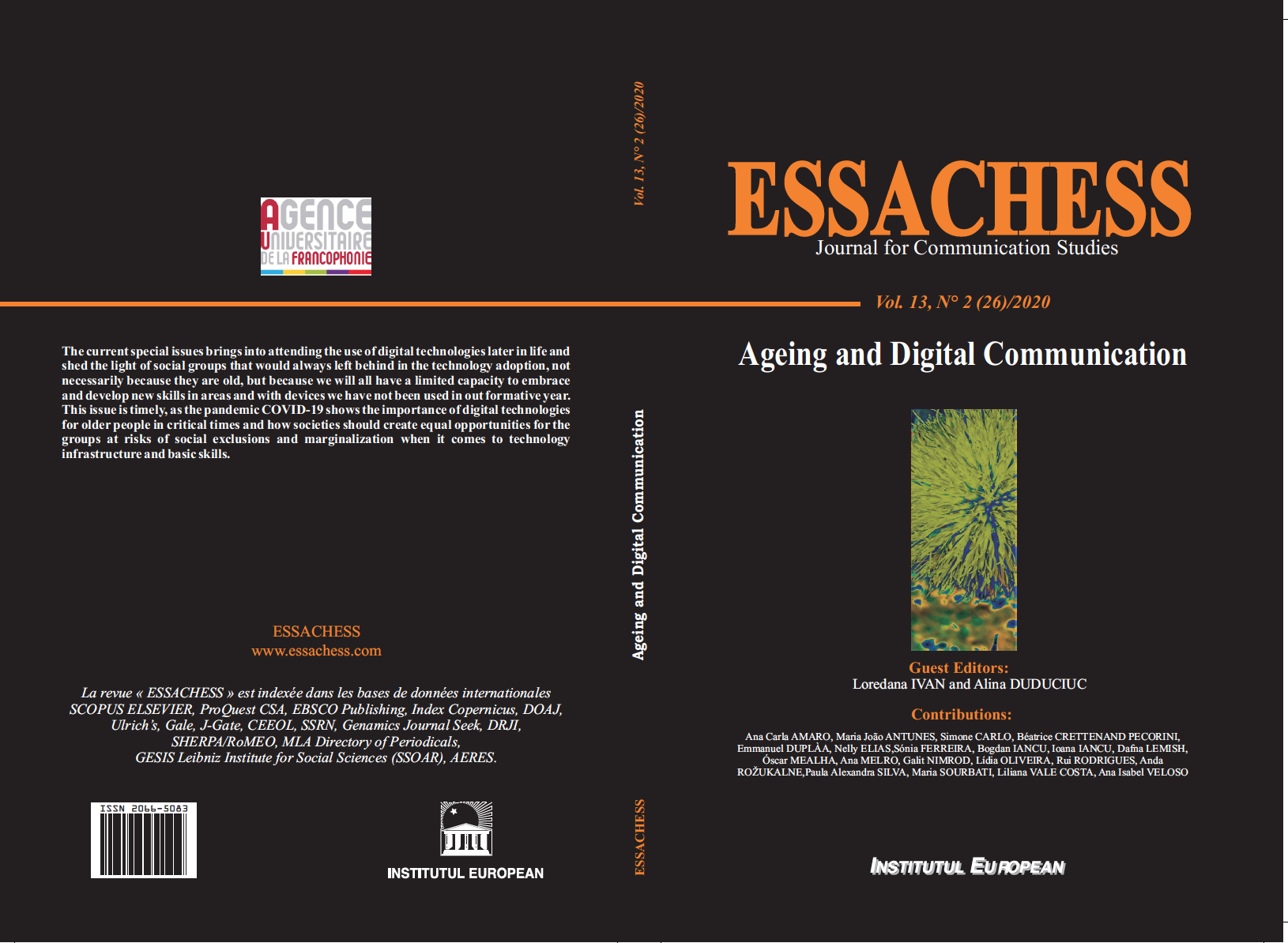Digital Media Usage and the Engagement of Older People from Rural Areas in Technological Projects: Co-design Sessions
Digital Media Usage and the Engagement of Older People from Rural Areas in Technological Projects: Co-design Sessions
Author(s): Ana Merlo, Lídia Oliveira, Ana Carla AmaroSubject(s): Anthropology, Social Sciences, Education, Psychology, Media studies, Governance, Public Administration, Communication studies, Sociology, Welfare systems, Political economy, Political psychology, Politics and communication, Politics and society, Comparative politics, Cultural Anthropology / Ethnology, Culture and social structure , Theory of Communication, Adult Education, Higher Education , State/Government and Education, Individual Psychology, Social development, Social differentiation, Social Theory, Family and social welfare, Gerontology, Social Informatics, Sociobiology, Sociology of Culture, EU-Approach / EU-Accession / EU-Development, Ethnic Minorities Studies, Social Norms / Social Control, ICT Information and Communications Technologies, Sociology of Politics, Inclusive Education / Inclusion, Sociology of Education, Politics and Identity
Published by: ESSACHESS
Keywords: elderly; digital technologies; rural areas; action-research projects; co-design projects
Summary/Abstract: The question posed in the call “How the widespread of new technologies are changing the norms and practices of the later life?” was transformed in the main motivation to write the paper. LOCUS scientific research project addresses the subjects of Internet of Things, its impact in maintenaince and sustainability of Cultural Heritage and the important role of older generations to these operations. What the research team noticed is that sometimes it is the dissemination of technologies (and accompanying infrastructures) that promote their use and the creation of the need. And when the technologies do not exist, the infrastructures are compromised and/or nonexistent. It is considered that there is a before and an after period in the way in which the implementation of technological projects influences rural areas and older people. This also means that there is a high relevance in the second question of the call “How social actors, groups, institutions and mainstream media provide, spread or constrain ways of growing older via digital devices?” But also, a high importance of the project developed for the scientific knowledge advancement in the study areas (Communication, Technology, Sociology, Demography, Geography, etc.). The main conclusions of the paper are that digital technologies contributes to those Cultural Heritage maintenaince and sustainability, however, this is only possible with the mediation of oler people. Consequently, those people need to know or learn how to manage digital media and technology in order to contribute for the projects and technology development. Older people aim to participate in these projects and that also influences on their proficiency on technologies (on a win-win basis).
Journal: ESSACHESS - Journal for Communication Studies
- Issue Year: 13/2020
- Issue No: 26 (2)
- Language: English

